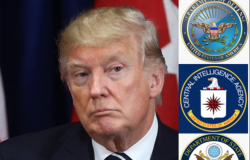American Policy Dissonance on the 2017 Gulf Crisis

Since the Suez crisis of 1956, the United States of America has been widely recognised as the dominant power in the Middle East. For sixty years, this domination has not only defined the regional balance of power, but it has also in some cases decisively shaped the internal politics of key regional states. Whilst contemporary U.S. influence (and interest) in the region appears to be in decline, no serious analyst can argue that the U.S. has lost the ability to shape key regional developments. In keeping with diplomatic norms, traditionally the U.S. has relied on its foreign policy establishment to formulate and implement its strategic policies in the region. The advent of Donald Trump and his peculiar brand of “arson” diplomacy threatens to undercut longstanding U.S. policy positions, notably the unwavering American commitment to the sovereignty and territorial integrity of the smaller Gulf States. Whilst the U.S. establishment appears to be sufficiently resilient to major policy disruptions, the danger is that even minimal disruption resulting from unofficial presidential diplomacy can potentially produce regional instability.
Policy Recommendations
- Small states such as Qatar should be prepared for a degree of U.S. policy upheaval in relation to the Gulf region during the Trump presidency.
- Recognise that U.S. influence (and interest) in the Middle East is on the decline. In this context, Trump’s declared desire to disengage from burdensome U.S. commitments in the region is not necessarily an aberration, but merely a blunt and acerbic expression of deep-seated American desires.
- The Gulf Cooperation Council states should act more independently of one another and diversify their arms supplies and alliances with a view to decreasing dependence on the U.S. in the long term.
- Encourage greater international involvement in regional security. This involvement can encompass both large international bodies (such as the European Union) and individual powerful states with an actual or potential global reach, such as Russia and China.
- Greater international involvement in regional security – in tandem with deeper indigenous security arrangements – can blunt the impact of future U.S. policy shifts or even a sudden loss of commitment.


